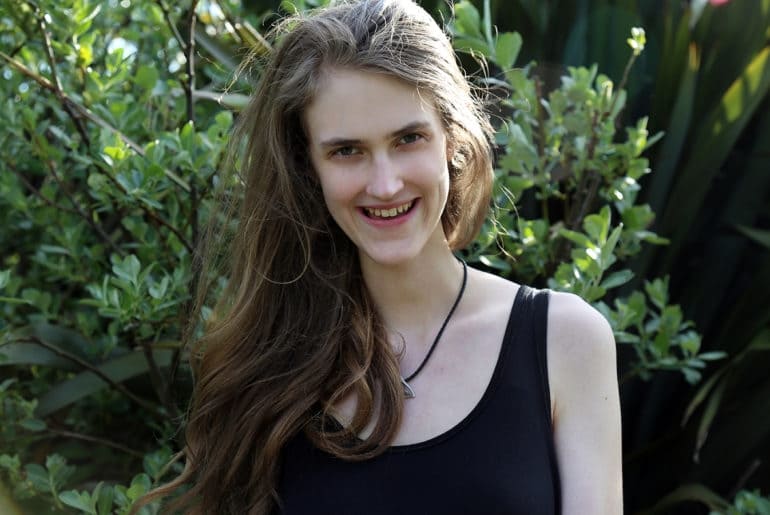
When I ask Julia Barnes to tell me who she is, she says, “I am an animal on this planet that’s hoping to survive this century.”
Half expecting to hear a standard, “I’m a filmmaker,” or, “I’m an environmental activist,” her raw response instantly hooked my interest.
Julia’s journey as an eco-warrior began when she was just 16 years old while attending high school in Burlington, Ontario. With her post-secondary years looming, she was, at the time, weighing her options of pursuing a career in either biology or fine arts. Then, she watched Revolution, a documentary made by the late filmmaker and conservationist, Rob Stewart, about the dire state of the natural world. Always harvesting a deep connection to nature, the movie spun Julia off her feet with striking statistics and images that revealed the rapid deterioration of planet earth.
Within a week, she ditched the fork in her career path altogether, and instead, jumped head first into documentary filmmaking. She bought a camera, signed up for a scuba diving course and delved into research that would eventually become the backbone of her first feature film: Sea of Life.
With no prior experience in filmmaking, Julia set out to probe the greatest threats facing the world’s oceans today, including warming temperatures and overfishing. Although the learning curve was steep, she felt a duty to spread awareness and pay forward the same inspiration that initially sparked her own will to change the world.
“The ocean is so often out of sight, out of mind, especially for people living in Canada and landlocked places,” she says. “What I found was that all of the people around me in my everyday life really had no idea what was happening. I wanted to educate people about what was going on so that hopefully, if they knew what was happening, they would want to fight for the ocean too.”
Growing up in Southern Ontario, Julia herself had never visited the ocean prior to filming. Her first time setting foot on the sandy saltwater shores of the Atlantic was during one of her first dives for Sea of Life in the Florida Keys. “It was amazing. On that first trip, I had my first introduction the beauty of the ocean,” she says. “But I also had the realization that the ocean is in massive trouble and that things are changing incredibly quickly. If you even go back 50 years, you realize that the underwater world looked radically different.”
From Florida, Julia continued to capture these changes and their repercussions around the world, exploring marine ecosystems in the Galapagos, attending the COP21 Summit in Paris, and participating in the largest climate march in recorded history in New York City.
Swimming in a sea of discouraging information was perhaps the most challenging element, she tells me. But, with support from many leaders on the front lines of the fight against climate change, such as Sylvia Earle, Emily Hunter and Rob Stewart himself, Julia’s message in Sea of Life, although urgent, is a hopeful one. Now, at the age of 22, she is content to say that she’s met all of her greatest heroes.
When I ask Julia if she’s currently enrolled in school, she flatly replies, “Nope. I’m full on changing the world,” ‒ an answer that’s unapologetically noble. Attending school would place her on a four to five-year plan, a timeline, she says, is much too long for the well-being of the planet. Her second feature film, which tackles potential solutions to the environmental crisis, is scheduled to be released by the end of this year.
Although she’s encountered plenty of trial and error on her journey, she says that her instantaneous plunge into the ocean, the world of documentary filmmaking, and the issues that plague the natural world was perhaps the best way to learn.
“Don’t wait. Go for it and know that you have so much more power than what you’re told or what you’re taught to believe,” she says as a word of advice to other young climate crusaders. “Let your passion guide you towards doing whatever you think will have the biggest impact, because no matter what we love, it’s in jeopardy right now.

